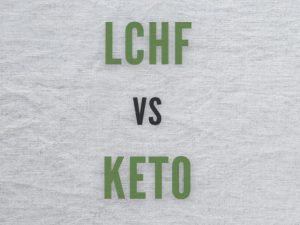

Obesity is a widespread health problem affecting millions of people worldwide. While diet and physical activity are key factors, the role of hormones in the development and maintenance of body weight in women is also significant. Understanding how hormones influence metabolism, appetite, and fat storage can be crucial for effective weight management and obesity prevention.
Estrogen and Progesterone
Estrogen and progesterone are the main female sex hormones that play an important role in regulating body weight. Estrogen tends to help maintain a lean body composition by supporting fat metabolism and regulating appetite. On the other hand, progesterone, especially during the menstrual cycle, can cause water retention and bloating, which can temporarily affect the feeling of weight.
Insulin and Glucagon
Insulin and glucagon are hormones that regulate blood sugar levels. An imbalance in these hormones can contribute to obesity in women. For example, insulin resistance, when the body becomes less sensitive to insulin, can lead to increased fat storage, especially in the abdominal area. High levels of insulin can also stimulate appetite and increase calorie intake.
Leptin and Ghrelin
Leptin and ghrelin are hormones that play a key role in regulating appetite. Leptin is produced in fat cells and sends signals to the brain to reduce appetite when fat levels in the body are high. However, in some people with obesity, leptin resistance occurs, meaning the brain does not respond appropriately to fullness signals. Ghrelin, known as the “hunger hormone,” increases appetite and can contribute to overeating and weight gain.
Cortisol
Cortisol is a stress hormone released in the body in response to stressful situations. Elevated cortisol levels can contribute to obesity in women in several ways. For example, increased stress can lead to emotional overeating, especially foods high in sugars and fats. Additionally, high cortisol levels can affect fat storage distribution, favoring abdominal fat accumulation.
Thyroid Hormones
Thyroid hormones, such as thyroxine (T4) and triiodothyronine (T3), play a crucial role in regulating metabolism. An imbalance in thyroid hormones can slow down metabolism and contribute to obesity in women. Hypothyroidism, a condition where the thyroid gland does not produce enough thyroid hormones, is often associated with weight gain and difficulty losing weight.
Conclusion
Hormones have a complex impact on body weight and obesity in women. Imbalance or dysfunction of these hormones can lead to disruptions in metabolism, appetite, and fat storage, which can contribute to weight gain. Understanding this complexity can help develop effective strategies for weight management and maintaining health in women.

Providing comprehensive tools for maintaining a healthy lifestyle, from tracking nutritional values to analyzing your BMI and information about food additives.

In recent years, there has been a significant increase in...
Read More...
Whether you're an athlete, an active individual, or just starting...
Read More...
Healthy eating during travel is crucial for athletes who are...
Read More...
Once praised for its rapid weight loss effects, the keto...
Read More...
Discover experiences and honest feedback from people who have trusted us with their journey to a healthier diet.
I absolutely love this portal! Their nutrition advice is invaluable and combines health with practicality. I highly recommend it to all health enthusiasts!
I've tried different portals, but nothing compares to the quality and useful information offered by HealthyFoodGo. Now I always feel informed and confident in my dietary decisions.
HealthyFoodGo offers top-notch nutrition advice. Their articles are not only reliable but also very informative. I can't imagine a day without visiting their portal!